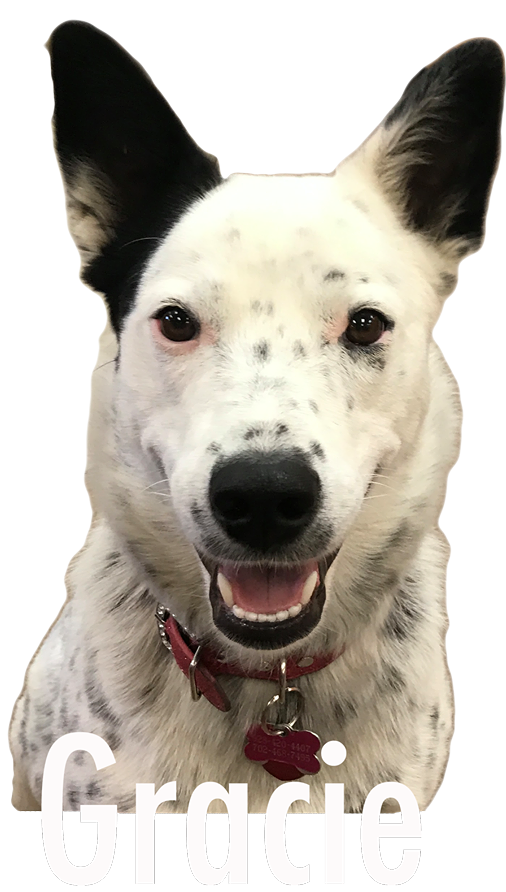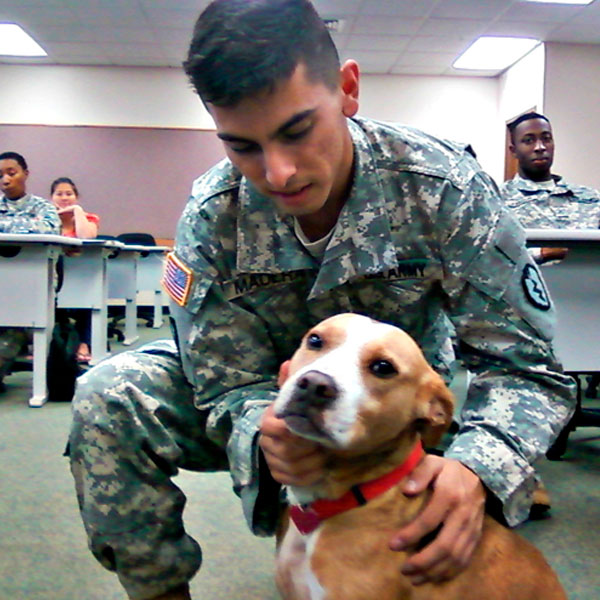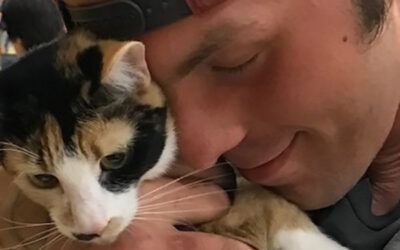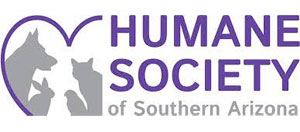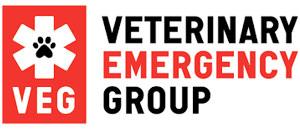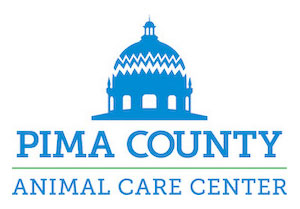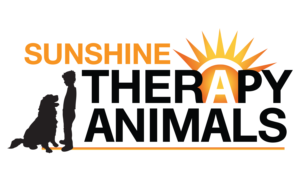We initially started bringing animals into the folds of our daily lives because of what they could do for us. Cats kept vermin down and dogs could stand guard, herd livestock, and play a role in hunting, among other jobs. Eventually, it grew into a companion situation. To this day, these creatures play roles in our physical and emotional wellbeing.
Rather interestingly, early practitioners of animal husbandry may have passed their genes down to those of us who love animals. According to best-selling author of In Defence of Dogs and visiting fellow in anthrozoology at the University of Bristol, John Bradshaw, the reason some of us are predisposed to responding to animals is this:
“Groups which included people with empathy for animals and an understanding of animal husbandry would have flourished at the expense of those without,” and that “The very same genes that today predispose some people to take on their first cat or dog would have spread among those early farmers.”
So, in his view, it seemingly boils down to the hypothesis that, as we’ve evolved over the centuries, we have subtly divided into two groups: those that feel an affinity for animals and those who are seemingly indifferent. The question could be asked if this is why some people respond so well to emotional support animals (ESA) and the therapy benefits they provide.
Because, young or old, there’s no doubt we do. Researchers have proven time and again that we benefit both physically and mentally from these relationships. They ease our anxiety, comfort us, keep loneliness at bay, lower our blood pressure, and add years to our lives, just to name a few of the perks they provide us.
Some of the physical benefits of animal-assisted therapy include improved fine motor skills and improved balance. Mentally, ESA therapy among children is shown to increase self-esteem, improve focus, attention, and motivation, which in turn lead to improved reading and social skills. It also improves self-control while increasing trust, empathy, and teamwork.
Here in Tucson, we are blessed to have one of the largest ESA communities in the entire country. We also have one of the most diverse that includes farm animals and domestic therapy pets. We’ve profiled many of the groups involved here within the pages of The Tucson Dog Magazine over the years, and we’ll continue to do so as they continue to evolve and expand.
One that we haven’t covered in the past is The Human-Animal Connection. A Tucson-based non-profit organization, The Human-Animal Connection (HAC) offers a unique initiative called Canines Teach Compassion that’s free of charge to teens.
A weekly program held at Rincon High School, HAC brings certified therapy animals — including dogs, cats, and horses — into school classrooms to teach social skills, increase resilience, and decrease stress. The program runs from September through April and serves teens that have been referred to counseling. Those that attend have seen huge strides since attending.
It’s no secret that high school is a difficult time for kids in general. Currently, in the U.S., students are experiencing tremendous stress and trauma. These stresses greatly affect their academic performance and ability to connect with others. But, as HAC notes, after just one hour of interaction with animals, students consistently report a more than 50 percent reduction in stress levels.
Last year, they offered a special program for teens who suffered the loss of a parent to COVID. In addition to the benefits of calming, joyful interactions with the dogs, their curriculum also teaches how to increase resilience, emotional coping, and social skills.
HAC’s Genie Joseph shared that the first step to compassion towards others is to stop judging yourself. She also explained that having a range of breeds, sizes, and colors of dogs in the program affirms how we are all different, and yet in some fundamental way we come to see how we are the same. If all dogs are good dogs, can we also begin to see the goodness in each other?
HAC’s strategy is unique in that the students teach the dogs, whereas with most programs the dogs are put through the paces for eligibility and registered with their handlers through the Alliance of Therapy Dogs or Pet Partners, another group that performs same or similar work. Students are taught how to evaluate stress levels in dogs as well as learn basic dog training methods. You can follow these links to learn more: youtu.be/UcKQRdC6CI0 or thehumananimalconnection.org/
Because stress interferes with academic performance, HAC has begun tracking positive grade trends with the students who participate in their plan. They announced a recent graduate of theirs is applying to the College of Veterinary Medicine at the University of Arizona.
HAC also works with veterans and active-duty military, where they train pets at Davis-Monthan Air Force Base to become morale dogs to support mental health. They’ve presented versions of their program to over 4,000 service members and their families. In addition to receiving a Presidential Volunteer Service Award at Tripler Army Medical Center, their team was also given a national award from The American Psychological Association for Resilience in the Workplace.
And their ESAs aren’t just limited to dogs, cats, and horses. HAC works with pigs, goats, donkeys, and even chickens. Their working model includes joining forces with several trainers, like Jeremey Brown’s Complete Canine and Cindy Morgan at Oh, Behave for therapy dog training classes, and they frequently invite other therapy groups to participate, such as the aforementioned Alliance of Therapy Dogs, Pet Partners, and Gabriel’s Angels.
Gabriel’s Angels does similar work with kids at Title One schools and afterschool programs, but with much younger children. We covered their amazing efforts in the last issue of The Tucson Dog where we discussed the fact that they work with 75+ facilities around the state, including crisis shelters, domestic violence groups, and homeless shelters.
Pet Partners of Southern Arizona (PPSAZ) covers Pima, Pinal, and Cochise counties. In addition to uplifting and comforting patients in hospitals, teams visit crisis centers, memory care and assisted living facilities, police stations, reading programs, at-risk youth programs, and community outreach activities, including the University of Arizona, Pima Community College, and Davis-Monthan Airforce Base.
“One of our favorite group events is visits to the University of Arizona during exam weeks,” Diane Alexander of PPSAZ shared. Library visits started in 2012 at the U of A Law Library and soon went to their main library. The main library now organizes the visits for the five on-campus libraries that the teams frequent.
Other ESA-oriented organizations benefitting southern Arizona residents of all ages include Sunshine Therapy Animals Tucson/Lapan Sunshine Foundation, Handi-Dogs, and Therapy Dogs of Southern Arizona. The Tucson Medical Center, Keirnan’s Kindness, and the Humane Society of S. Arizona also offer pet therapy visitation services/programs. And these are just the groups that predominantly work with canines — not that some of them don’t also work with horses.
Speaking of which, you can’t live in the Southwest without horses playing a prominent role. In fact, equine therapy here in Arizona is second only to canine therapy, with a number of options for folks here to choose from. There’s TROT, which stands for Therapeutic Riding of Tucson, Equinimity Ranch, Heart of Tucson Happy Equines, Step Up into TLC Equine Therapy, and Therapeutic Ranch for Animals and Kids, aka TRAK.
Established in 2007, TRAK is a wonderful organization that, like the rest of these groups, celebrates the incredible human-animal bond. Located at the River Bend Ranch along the Rillito River, this sanctuary of sorts has more than just equines to interact with. Sure, many of the others include a donkey or burro or two, and even, perhaps, a few goats or other farm animals. But TRAK is home to dogs, cats, goats, rabbits, burros, a small pig named Wilson, and, of course, horses Bravo and Tinka.
Their therapeutic services include Eagala, Equine-Assisted Psychotherapy for families and individuals, Equine-Assisted Learning, and Small Animal Therapy. But there’s so much more going on there with field trips, camp experiences, trail rides, birthday parties, and ranch projects for little buckaroos to take part in.
Wild Horse Haven Rescue is a marvelous 501c3 non-profit in Safford that utilizes horses and other fuzzy friends for the implementation and continuation of programs for kids, veterans, and other survivors of PTSD and related anxiety/stress disorders. The founder and president, Afton “Duane” Whitmer, is a former Deputy Sheriff, world adventurer, and mustang trainer who turned his ranch into a haven and began rescuing mustangs and other horses about seven years ago.
Whitmer noted that horses and other animals often experience PTSD, just as humans do, and that the programs he’s implemented are specifically designed to provide support for them through structured interactions. The end result is that it’s good therapy for everyone involved.
With regards to kids, the rescue provides youth programs, such as its Wild Horse Camp, which is committed to educating children in the quest to respect animals (and all life), and to actively support responsible care and understanding of animals and nature. Resources for veterans include Wild Horses for Heroes, where vets suffering from PTSD and other mental health issues have a safe haven to escape to and work towards reclaiming their lives.
And then there’s Soldier’s Best Friend up in Peoria. A terrific program designed to give service members improved wellbeing and quality of life through relationships with service animals, the group behind it is dedicated to bringing about positive change for veterans diagnosed with PTSD. So far, the impact they’ve had in veteran’s lives has been life-changing.
The one thing that each and every one of these remarkable facilities has in common, besides ESA therapy, is the need for volunteers and, in many cases, donations to continue their important work. Most of them are completely staffed by volunteers, but they could still use the extra help. If you’d like to become a part of any of them or look into the fantastic services they provide, check out their websites below.
equinimitytucson.com, petpartnerssoaz.org, gabrielsangels.org, trotarizona.org, handi-dogs.org, wildhorsehaven.com, soldiersbestfriend.org, traktucson.org, heartoftucson.org, therapydogsa.org, stepuptlc.org, hssaz.org/services/outreach/
